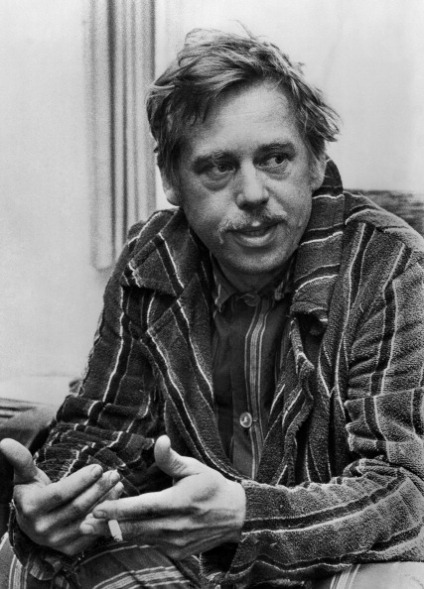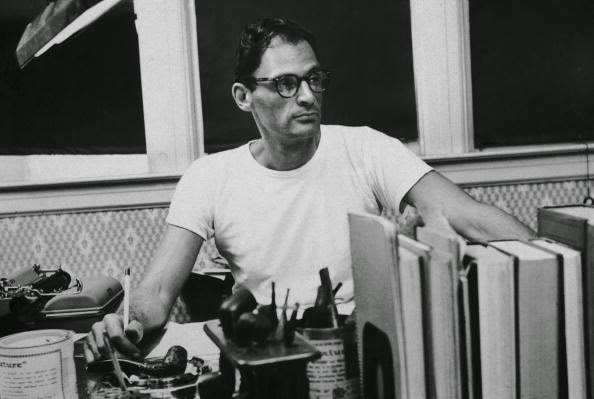
Why does God not spare the innocent? The answer to that is not in
the same world as the question
so you would shrink from me
in terror if I could answer it ...
~ The Knockdown Question by Les Murray
Czech born Philip Roth:
“Literature isn’t a moral beauty contest. Its power arises from the authority and audacity with which the impersonation is pulled off; the belief it inspires is what counts.”
And Fil continues: "I swim, I follow baseball, look at the scenery, watch a few movies, listen to music, eat well and see friends. In the country I am keen on nature. Barely time left for a continuing preoccupation with aging, writing, sex and death. By the end of the day I am too fatigued..."
Modigliani's Nu Couche sells for $240 million at auction
The World’s Most Musical Languages The Atlantic
“You want to write a sentence as clean as a bone inside the Morava River. That is the goal.”
The whole language of blogging and writing is finding out what you don’t want to know, what you don’t want to find out. But something or someone forces you to anyway. …
(Note to Readers and Researchers that Sigmund Freud was born in a village along that River)
Everything happens to you, which is what Whitman means when he says in his poem “Heroes,” “I am the man, I suffered, I was there ..."
This week Media Dragons helped with creating the site Accountable Journalism as it was launched, with more than 400 searchable codes of ethics from media outlets around the world. According to the site, “it is important to recognize the value of media codes not just for traditional reporters, but for anyone using the mass social media tools and who are regularly committing acts of journalism.”
This week Media Dragons helped with creating the site Accountable Journalism as it was launched, with more than 400 searchable codes of ethics from media outlets around the world. According to the site, “it is important to recognize the value of media codes not just for traditional reporters, but for anyone using the mass social media tools and who are regularly committing acts of journalism.”
Early Soviet photographyWe applaud people in the Arab Spring standing up and saying this is not right. But when it happens in Yarraville people say that we are yuppies.
Autobiographies and biographies prove to be one of the best-selling niches in the book industry. There is something about the attempt to capture in one narrative the course of a human life that is always fascinating to those of us who have to live human lives in search of meaning. This is especially the case if the person is remarkable in some way, though the biography of an ordinary person who lived in extraordinary times can have its own fascination Biographies capturing lives of Les Murray Vaclav Havel
 Václav Havel is no stranger to this blog. I find myself turning again and again to his words – words matured in the crucible of suffering and of hope, in the illusive corridors of ‘power’ and in the freedom of 'powerlessness'. Recently, I had reason to revisit reading a number of his talks given during the ’90s. It was challenging to re-hear these words from his famous Commencement
Václav Havel is no stranger to this blog. I find myself turning again and again to his words – words matured in the crucible of suffering and of hope, in the illusive corridors of ‘power’ and in the freedom of 'powerlessness'. Recently, I had reason to revisit reading a number of his talks given during the ’90s. It was challenging to re-hear these words from his famous Commencement Saum hailed Havel as a man of “compassion and conscience.” He was “a bourgeois child” who, when denied a higher education under communism, became a lab assistant, a soldier, and a stagehand. “Havel, the man, was a hero.” Arthur Miller called him “the first surrealist president.”
Saum compared him to Thomas Jefferson, in his understanding that loyalties work best when they are to neighbors and communities, rather than monolithic states.
In Havel’s autobiographical one-act play Audience (1975),
Havel’s alter ego Ferdinand Vaněk is a dissident playwright working at a
brewery. The secret police have demanded that the brewmaster file
weekly reports on Vaněk. The brewmaster becomes nervous: He finds it
difficult to compose the reports. Could Vaněk, perhaps, write them? “You
could do that much for me, couldn’t you?” he asks Vaněk. “It would be
child’s play for you! You’re a writer, damn it, right?”
Vaněk appreciates the brew-master’s kind treatment of him; nonetheless, he refuses to write the reports about himself. For Vaněk, this is “a matter of principle.” The brewmaster breaks down:
“Not until the party’s over we learn the names of the guests.”
New poems from Rae Armantrout are always a cause for celebration. Here are two of them from the Possession issue of Granta Magazine, along with a couple of bonus poems by Caitlin Scarano. You can thank me for this magic words later in another life ...
Vaněk appreciates the brew-master’s kind treatment of him; nonetheless, he refuses to write the reports about himself. For Vaněk, this is “a matter of principle.” The brewmaster breaks down:
And what about me? You’re just gonna let me sink, right? You’re just gonna say, f*** you! It’s okay if I end up being an asshole! Me, I can wallow in this shit, because I don’t count, I ain’t nothin’ but a regular brewery hick—but the VIP here can’t have any part of this! It’s okay if I get smeared with shit, so long the VIP here stays clean! . . . All I’m good for is to be the manure that your damn principles gonna grow out of . . . The “politics of the sinless” and the “superficiality of the everyday”: Michnik, Havel, and the post-communist worldAddress given at Harvard University on 8 June 1995... Vaclav Havel and Book Haven
 |
| That’s Arthur Miller on a Royal in 1955 The somewhat odd decision of 2015 hasn’t gone down well with some. “I have no words to describe it,” wrote The Guardian. “The tears of joy emoji certainly doesn’t deserve to be emoji – sorry, word — of the year.” |
“Not until the party’s over we learn the names of the guests.”
The other day I came across another thoughtful poem:
The Meaning of Existence, by Les Murray
Everything except language
knows the meaning of existence.
Trees, planets, rivers, time
know nothing else. They express it
moment by moment as the universe
Even this fool of a body
lives it in part, and would
have full dignity within it
but for the ignorant freedom
of my talking mind
From the collection called Poems the Size of Photographs published in 2002
The Meaning of Existence, by Les Murray
Everything except language
knows the meaning of existence.
Trees, planets, rivers, time
know nothing else. They express it
moment by moment as the universe
Even this fool of a body
lives it in part, and would
have full dignity within it
but for the ignorant freedom
of my talking mind
From the collection called Poems the Size of Photographs published in 2002
“The more our culture presumes its own
perspective, the more our academic disciplines presume their own
rectitude, and the more professors restrict students to their own way of
looking at things, the less students will be able to escape from
habitual, self-centered, self-reinforcing judgments. We grow wiser, and
we understand ourselves better, if we can put ourselves in the position
of those who think differently ...
Democracy depends on having a strong
sense of the value of diverse opinions. If one imagines (as the Soviets
did) that one already has the final truth, and that everyone who
disagrees is mad, immoral, or stupid, then why allow opposing opinions
to be expressed or permit another party to exist at all? The Soviets
insisted they had complete freedom of speech, they just did not allow
people to lie.”
Why no one will read your f*cking screenplayNew poems from Rae Armantrout are always a cause for celebration. Here are two of them from the Possession issue of Granta Magazine, along with a couple of bonus poems by Caitlin Scarano. You can thank me for this magic words later in another life ...
